Was Hazrat Mirza Ghulam Ahmad (as) a British agent?
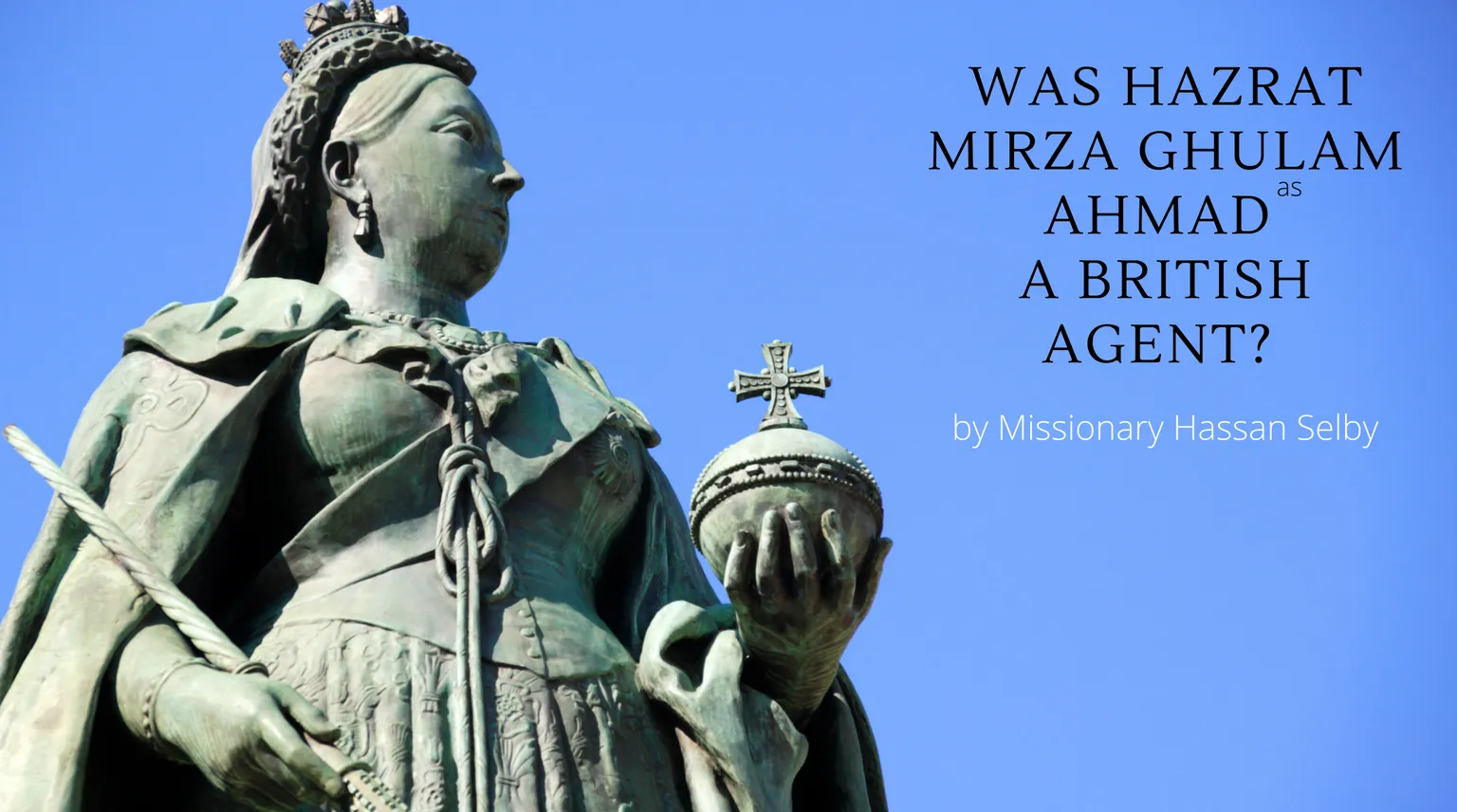
by Missionary Hassan Selby
Allegation
One of the allegations raised against the Promised Messiahas is that he was an agent of the British, planted to create division among the Muslims and break Islam from within. Accusers cite his praise of the British government in many of his books and his use of the term ‘Khud Kashta Pauda’ meaning ‘A plant sown by themselves (i.e.: the British government)’about his family on page 350 of his book Kitab-ul-Bariyyah, published in 1898.
This is the evidence, accusers allege, that the Promised Messiahas was a British agent working to divide the Muslims.
Refutation
A Quranic Argument
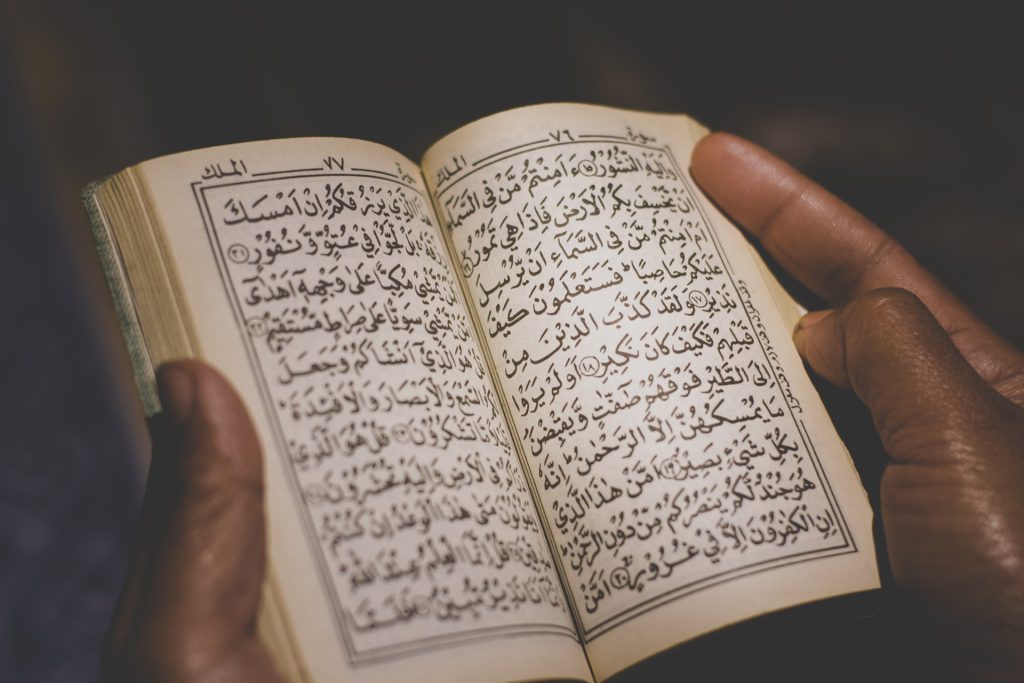
The Non-Ahmadi Muslim scholars who have placed this allegation against the Promised Messiahas of being a British agent have ulterior motives for attempting to defame him. They cannot explain his success, and so they attribute it to the British, claiming that his movement has spread, not by the grace of God, but by the patronage of a foreign nation. Their views are, unsurprisingly, contradicted by Allah Himself. Allah in the Quran states:
It is a revelation from the Lord of the worlds. And if he had forged and attributed any sayings to Us, We would surely have seized him by the right hand, And then surely We would have severed his life-artery, And not one of you could have held Us off from him.
Quran 69:44-48
In these verses, God says that even if His most beloved servant – Muhammadsa – had attributed even any false statement to God, then God Himself would have slain him, and that no power could have prevented God from doing so. On the one hand we have this pronouncement by God, yet on the other hand we have non-Ahmadi Muslims claiming that from 1884 (first publication of revelations in Baraheen e Ahmadiyya Part 3) to 1908 (his death), for a period of 24 years, Hazrat Mirza Ghulam Ahmad published false revelations attributed to God, across some 90 books, and yet God never seized him with punishment. He was never killed – and why? Because of the British empire! Evidently, such non-Ahmadi critics believe the British empire was more powerful than God!
After this theological argument, we turn to the historical exploration of the Promised Messiah’sas relationship with the British government.
Why the Promised Messiahas Praised the British
It is indeed a fact that the Promised Messiahas, no doubt, praised the British on numerous occasions. However, when he praised them, he mentioned that he did so because the plight of the Muslims had become so desperate under the Sikh government; Sikh rule had stripped the Muslims of all of their rights and treated them in an unparalleled cruel manner for that time.
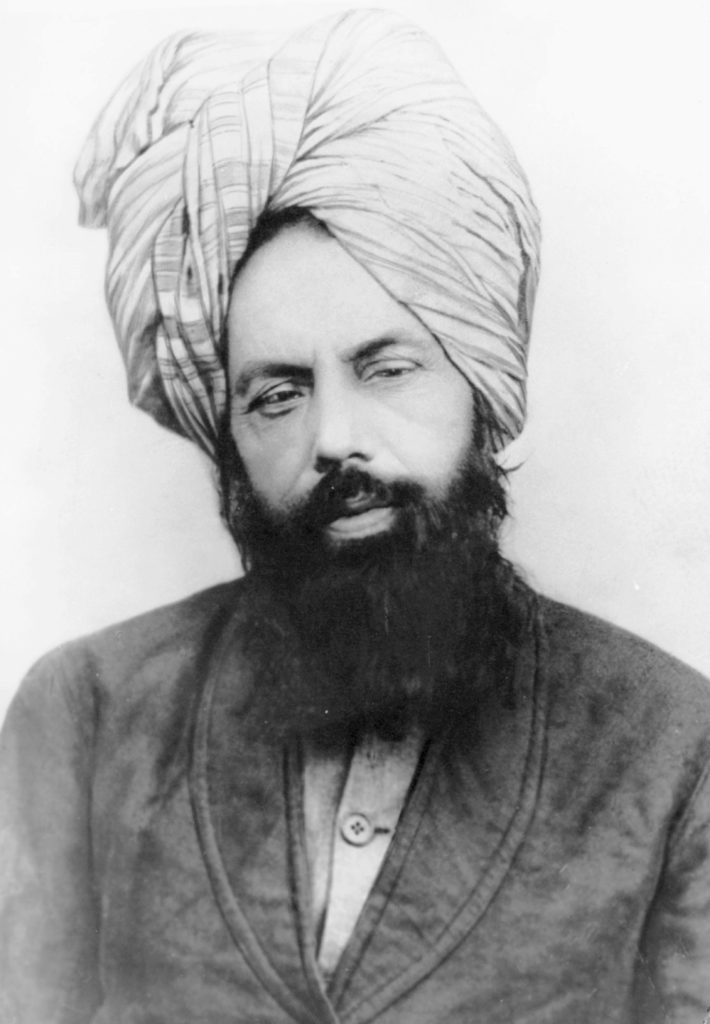
British Rule Overturned Sikh Persecution
It was the British that delivered the Muslims from the persecution of Sikh rule and restored their rights to them. It is only natural that such an act of kindness would receive praise from an Indian Muslim of the time.
Regarding the state of the Sikh rule at that time, a Hindu named Tulsi Ram writes in his book ‘Sher-e-Punjab’ (published in 1872):
In the beginning the Sikh practice was to devastate and plunder. They used to plunder whatever they came upon and distribute it among their own people. The Sikhs had great enmity towards Muslims. They would not let the Adhan be called out loudly. They used to forcibly occupy mosques and start recitals of Garanth in them—calling this practice ‘maut kara’.
Sher-e-Punjab (1872)

Further details of atrocities committed by the Sikh rule at that time can be found in Encyclopaedia of Sikh Literature. This includes accounts of numerous acts of assaulting Muslim women, destruction of Mosques, converting Mosques into stables for donkeys, massacre of Muslims, killing Muslims for calling the Adhan etc. It is therefore out of human decency that the Promised Messiahas praised the British for freeing the Muslims from such persecution.
In his book “British Government and Jihad” the Promised Messiahas explains this point fully. He writes:
One cannot enumerate the comforts which the Muslims have under this British Government. Many who lived under Sikh rule are still with us today. They should come forward and tell others about the circumstances of Islam and the Muslims at that time. The adhan [Call for Prayer], which is a mandatory tenet of Islam, was considered a crime. No one who called the adhan could survive the hatchets and spears of the Sikhs. Did God err in freeing the Muslims from the Sikhs’ transgressions and in delivering them to the sanctuary of British rule? As soon as this government took power, the Muslims of Punjab were, for all practical purposes, granted their faith anew. Since a good deed demands a good deed in return, we should not renounce the blessing that God has granted us in place of Sikh rule as an answer to our many tears and prayers
British Government and Jihad, Hazrat Mirza Ghulam Ahmadas (1900); p.15
Promised Messiahas Corrects Misconceptions about Jihad
In response to the constant incitements from the non-Ahmadi Muslim clerics that the Promised Mahdi should kill all the disbelievers and establish Islam all over the Earth by force, Hadhrat Mirza Ghulam Ahmadas was instead praising a non-Islamic government. Why was this? The Promised Messiahas explained:
I do not indulge in any flattery of this government. Rather, in the light of the Holy Qur’an, it is prohibited to wage a religious war against a government which does not itself interfere in the religion of Islam or religious practices—nor does it draw its sword against us in an attempt to promote its own religious beliefs. The reason for that is that this government itself is not waging any religious war It is incumbent that I express my gratitude to them, for I could not have done my work in Mecca and Medina as freely as I have in this land. The wisdom of God chose that I be born in this land. Then, am I to belittle the wisdom of God?.
Noah’s Ark, Hazrat Mirza Ghulam Ahmadas; (2018) p.120
This in fact is reflected in the very book critics cite their allegation from, when he explains that his recounting his efforts to clear misconceptions about Jihad in the population of Muslims was done out of love for truth, not out of love for acclaim by the government:
“My temperament never felt inclined to mention these consistently performed services to the Government authorities, because I was not motivated by any desire to be acclaimed or compensated for that. Quite the contrary, I felt it was my duty to explicitly acknowledge the truth.”
Kitaab ul Bariyya, Hazrat Mirza Ghulam Ahmadas p.340
One prominent example of his correction of false beliefs about Jihad is in his book ‘Jesus in India’. In that book, he explains that the reason that callousness, cruelty and lack of sympathy has entered a large population of the Muslims is because they are taught myths and false notions about Jihad from a young age. The misconception of a bloodthirsty Mahdi and Messiah who will kill all of the disbelievers when he appears, has caused this. Explaining the true understanding of Jihad, the Promised Messiahas wrote:
Islam, on the contrary, does not allow the use of the sword in religion except in the case of defensive wars, wars which are waged to punish a tyrant, or those which are meant to uphold freedom. The need of a defensive war arises only when the aggression of an adversary threatens one’s life. Except for these three kinds of Jihad permitted by the Shariah—Islamic law, no other kind of war is allowed by Islam in support of religion.
Jesus In India (1908; reprinted 2016) Hazrat Mirza Ghulam Ahmadas, p. 2-3
From this, it is very clear that the Promised Messiahas was merely acknowledging the kinder treatment that was experienced under the British rule and refused to instigate Jihad against a government, which in no way prohibited Islamic practice or preaching. It was his view that Jihad in terms of warfare, should not be used to expand a nation or a religion’s political ambitions, rather, it should only be used for defensive purposes as a last resort.
The Promised Messiahas also praised other aspects of their rule, most notably the promotion of book publication, the introduction of the railway, and their vaccination programme in response to the bubonic plague. Being a true Muslim, who always acknowledged favours and was appropriately grateful, he recognised these services. This is in keeping with the sunnah.
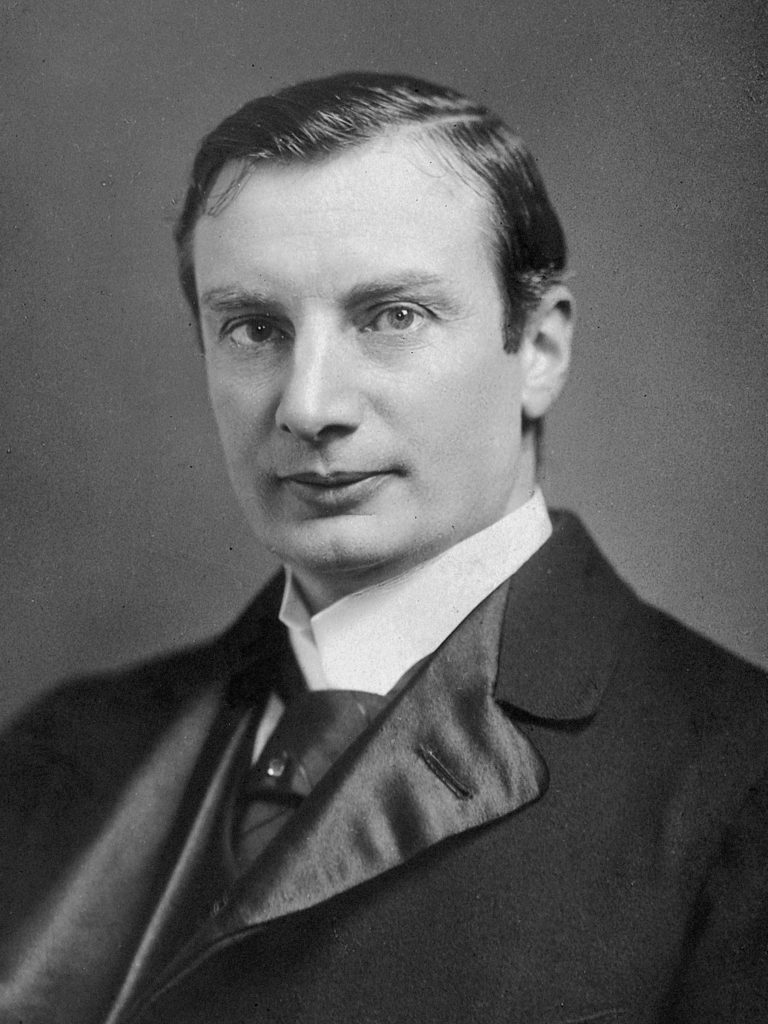
When all of this is borne in mind, especially when compared against the mistreatment of the previous Sikh government towards the Muslims, it becomes clear as to why the Promised Messiahas felt the need to praise the British rule, especially as regards its role in enshrining religious freedom. Indeed, despite the critique many may level against British colonialism, the establishment of religious freedom in all colonies, and its enforcement, was no doubt a praiseworthy step. The praise of the Promised Messiahas was therefore to remind the Muslims how much better life became for religious tolerance and thus to remove any ideas of rebellion, which would only worsen their condition.
The Family of the Promised Messiahas and the British
Typically, allegations against the Promised Messiahas state that as a result of his family’s loyalty to the British, they were awarded some land and villages. The loyalty that the Promised Messiah’sas family showed the British was that they supported the British in their battles against the Sikhs and in some other battles. They supplied armed troops to the British at their own expense.
These services were rendered by the Promised Messiah’sas family, pre-dating his prophetic claims, and he has at no place said that these services have anything to do with the Ahmadiyya Movement or any member of the Ahmadiyya Muslim Community.
The only act of beneficence that was bestowed on the Promised Messiah’sas family by the British as a reward for their services was that the British delivered them from the oppressive Sikh rule. The Sikhs had repeatedly attacked his family and eventually forced them into exile for a number of years. When the British took over, his family were able to return to their village of Qadian.
This is what his words Khud Kashta Pauda or “a plant sown by themselves (i.e.: the British)” referred to. This statement was in relation to his family, not in relation to his religious claims. This is made clear from the surrounding context of the use of the term:
“Fifty years of continuous experience has proven it to be a valiantly loyal family and in respect of which the higher officials of this esteemed government have always testified in their testimonials, on the basis of their considered opinion, that they have been staunch well-wishers of the British government, and in their service, since ancient times. So the Government should take utmost caution and care and should make investigation and pay due attention to this khud kashta pauda.”
Kitabbul Bariyya, Hazrat Mirza Ghulam Ahmad, Ruhani Khazain, Volume 13, p. 350
The Promised Messiahas further argued in the same book, when explaining this fifty years of evidence, that his family had provided the British with armed cavalry at their own expense in order to help the British to defeat the Sikhs and establish their sovereignty in India. Consequently, the British restored the village of Qadian and a few neighbouring villages to the Promised Messiah’sas family but they kept confiscated seventy other villages which also used to belong to them! The Promised Messiahas continuously warned his father to give up litigation for getting these villages back, however, his father didn’t heed his advice and spent all of his remaining life savings and property in an effort to get them back. Nevertheless, the British did not restore even a single one of these villages to them.
Is this the reward given to a British agent?
As for monetary reward, it is recorded in the well-known book, entitled The Punjab Chiefs, compiled by Sir Lepel Griffin and Colonel Messey, revised by Mr. (later Sir) Henry Craik (1910) that:
“At the time of annexation, the jagirs of the family were resumed but a pension of Rs.700 was granted to Ghulam Murtada and his brothers and they retained their property rights in Qadian and the neighbouring villages.
The Punjab Chiefs; Sir Lepel Griffin and Colonel Messey (1910)
Although it is not mentioned in this book, this pension was gradually reduced and later terminated.
To sum up, the reward of the British to the Promised Messiah’sas family for the services they rendered, was helping them to live in peace once more, restoring Qadian and a few neighbouring villages, while withholding the remaining seventy villages and granting a pension which was gradually reduced and later terminated. Hardly the bargain which would incite the Promised Messiahas to forego his beliefs about God and become an agent of the British, especially when taking into consideration that he urged his family not to pursue litigation, as he didn’t feel the British would grant them their lost villages.
Evidence against the Theory
How can we prove that the Promised Messiahas was not an agent of the British? We can do so by looking at his goals and mission.
British Aims to Spread Christianity in India
Regarding the British presence and purpose in India, Lord Lawrence, who was a well-known personality among the British and former Viceroy of India has written:
“Nothing will more easily conduce to the strength of our power in India than the spread of Christianity. ”
Lord Lawrence’s Life, vol. 2, p. 313
Lieutenant Governor Sir Donald McLeod also expressed his opinion on India at the time of the Promised Messiah by saying:
“I must add at the same time my belief, that if we have any regard to the security of our dominion in India, it is indispensable that we do our utmost to make it a Christian country.”
The Missions of the Church Missionary Society and the Church of England, Zenana Missionary Society in the Punjab and Sindh, by Rev. Robert Clark, M.A, p. 47, London, 1904
Furthermore, Lord Palmerston, the Prime Minister of the United Kingdom, expressed his view about India in 1862, when he said;
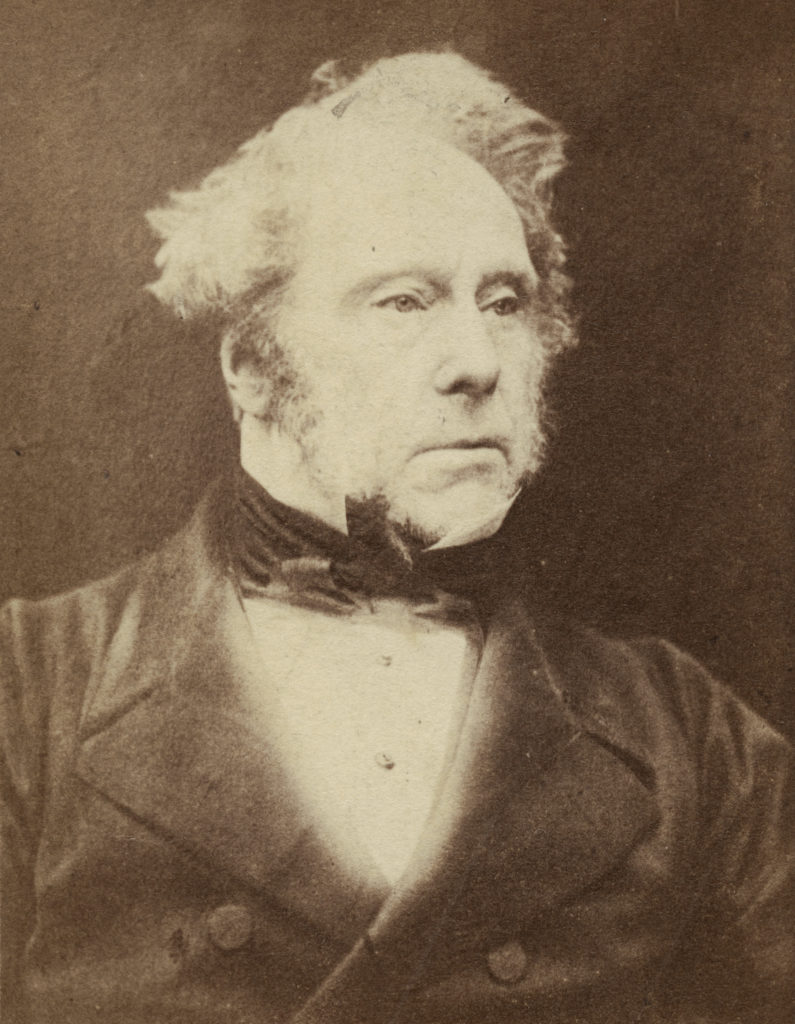
“I think we are all agreed as to the end. It is not only our duty, but it is our interest, to promote the diffusion of Christianity, as far as possible, throughout the whole length and breadth of India.”
Ibid., p. 234–235
We have to ask whether the Promised Messiahas, as a religious leader, behaved in a manner that supported or undermined these well known objectives of British colonialism. If his actions supported such colonial efforts, then we can say that the case for him being such an agent could be accepted. If however his efforts were contrary to it, then his being an agent cannot be entertained.
Promised Messiahas Invites Queen Victoria to Islam
The Promised Messiahas wrote a book entitled ‘A Gift for the Queen’ on the occasion of Queen Victoria’s 60th jubilee. In this book, he acknowledged the truthfulness of all prophets. He openly mentioned many times throughout this book that he was the Promised Messiahas and the much awaited second coming of Jesus Christ. He didn’t stop there either; regarding Isaas he wrote:
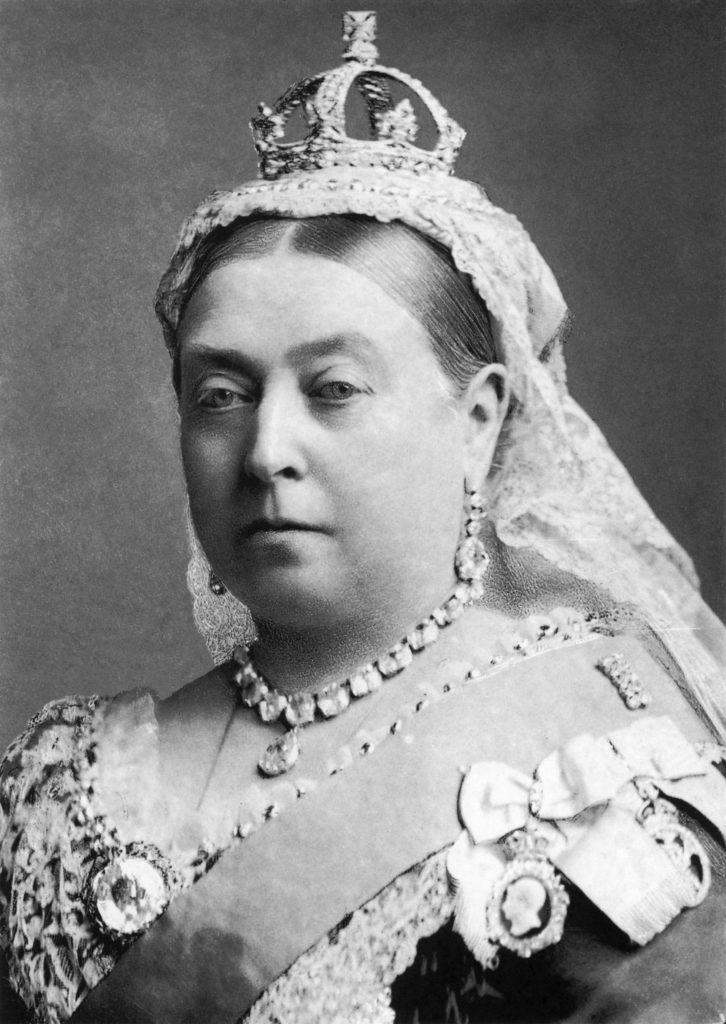
He is not God as has been conjectured.
A Gift for the Queen; Hazrat Mirza Ghulam Ahmad; p19
Furthermore, he states:
Of the wonders which God has bestowed upon me, one is that I have met Jesus the Messiah several times in a state of perfect wakefulness which is called a vision. I have talked to him and have ascertained from him the nature of his real claim and teachings. A major point, which is worthy of attention, is that Jesus the Messiah is so disgusted with the doctrines of Atonement, Trinity, and Sonship, as if these are the great impostures that have been fashioned against him. This evidence of vision is not without support. I believe firmly that if a sincere seeker after truth would come and stay with me for a period and would wish to meet Hadrat Masih [the Messiah] in a vision, he would be able to do so through the blessings of my supplications and attention. He can also talk to him and receive his affirmation of what I have stated, for I am the person in whom the soul of Jesus, the Messiah, resides by way of reflection. This is a gift which is worthy of presentation to the august presence of Her Majesty, the Empress of England and India.
A Gift for the Queen; Hazrat Mirza Ghulam Ahmad; p. 19-20
From this powerful passage, the Promised Messiahas emphatically declared to the Empress of the British Empire that not only are the core Christian beliefs false, but Hadhrat Jesusas believes this as well and this can be proven by spending time in the company of a Muslim (himself)! Rather than the Promised Messiahas being an agent of the British, the evidence presented here indicates quite the reverse; he had called on the crown of Britain to forsake Christianity and embrace Islam and monotheism instead.
The Promised Messiahas invited Queen Victoria to accept his claim in this book and in so doing, exonerate Jesusas of the title being accursed that was attributed to him by St Paul and following Christians. In the same book, we therefore find on page 23:
If Your Majesty, the Empress of India, Queen of Britain, should be interested, my God has the power to manifest a sign for Your Majesty which would be indicative of joy and good fortune; provided that after witnessing the sign Your Majesty would accept my message, and that effect would be given throughout the country to the mission that I hold on behalf of Jesus.
Ibid; p. 23
If the spread of Christianity in India was the goal of the British, as we have seen that it was, then the Promised Messiahas would never have invited the British Queen to Islam if he was their agent!
The Promised Messiahas proved that Jesusas died
In stark contrast to the idea of the Promised Messiahas served Christianity, his was the voice that claimed that Hadhrat Jesusas survived the crucifixion and had died a natural death, nearly two thousand years ago. This belief that he proclaimed throughout the whole world was aimed at destroying the foundation of Christian doctrine – the Atonement – for surely, if Jesusas didn’t die on the cross for the sins of mankind, then the basis of Christian belief is finished.
For this purpose, he wrote the book Jesus in India (1908) in which he gave a large variety of evidence to this effect from numerous sources. He first used the Bible to prove that Jesus survived the ordeal on the cross by reminding us of the promised sign of Jesusas which was the sign of Jonahas, namely of survival in extreme circumstances, rather than death and resurrection He then went on to point out that Jesusas demonstrated signs of life after the “resurrection” indicating he had not died in the first place, but survived the crucifixion. He quoted, for example, Jesus’as eating with his companions after the crucifixion, while saying:

It is I myself; touch me and see for a spirit has no flesh and bones as I have. They gave him a piece of broiled fish, and he took it and ate it in their presence.
Luke 24:39-42
The Promised Messiahas used this verse to show that Jesus was still alive after his ordeal on the cross. This is why he needed to eat and this is how they were able to touch him. If he needed to eat then, and is still alive now, then how has he been eating all of these years and from where?
He further showed in this book that it was the mission of Jesus to look after the lost sheep of Israel, a term used by Jesus himself in the Bible (Matthew 15:24). He mentioned that ten of these lost tribes of Israel were taken captive 721 years prior to Jesus’ advent, by King Shalmaneser of Assur. He further stated that they were forced to settle East in places such as Kashmir and Tibet and so Hadhrat Jesusas had to travel east to preach to these tribes also, a task that was undertaken after his ordeal on the cross.
Going one step further, the Promised Messiahas also used the Holy Qur’an to prove that Jesus didn’t die on the cross. For example, the Qur’an states:
And they did not slay him, nor did they kill him by crucifixion. However, he was made to appear to them as such.
Quran 4:158
He further used the hadith or traditions of the Holy Prophet Muhammadsa to prove the point, which state that Jesus lived to the age of 125 years old (despite his attempted crucifixion at the age of 33) and that he travelled extensively during his life, thereby attaining the title ‘the travelling prophet.’
One of the main ways that the British spread Christianity throughout India was by stating that Islam itself states that Jesus is alive in Heaven and so is better or more exalted than the Holy Prophet Muhammadsa. Through these proofs and many more which can be found in his books, the Promised Messiahsa not only proved that Jesusas didn’t die on the cross according to Christianity, but also according to Islam.
Such proof reasserted, for Muslims, that Islam is the true and best religion, giving a crushing blow to the British attempts to convert the Muslims of India to Christianity. Hardly the work that would be undertaken by a British agent of the time!
Going one step further, he proved through his books that the tomb of Jesus can be found in Srinagar, Kashmir. In his book ‘Raaz-e-Haqeeqat’, he described the tomb of Yuz Asaf in Srinagar to be of a prophet from a foreign land, 1900 years ago.
Yuz Asaf is a Hebrew name that translates to “Jesus the Gatherer”. The tomb of Yuz Asaf is found in the Muslim part of Kashmir, indicating that he wasn’t a Hindu prophet. His body is also buried with his head pointing North according to the Jewish custom. Some tablets with the teachings of Yuz Asaf were also found in his tomb and these are the same as Jesus’ teachings. Graves surrounding his shrine have Hebrew inscriptions on their tombstones.
More recently researchers have demonstrated that the Kashmiri Muslims are descendants of the Bani Israel, just as Hazrat Mirza Ghulam Ahmadas claimed,and so Jesusas was duty bound to visit Kashmir as he was to spread the message of God to the lost sheep (the remaining ten tribes) of Israel. History tells us of no other Jewish prophet from that time other than Hadhrat Yahyaas (John the Baptist) but he certainly had no reason to travel to Kashmir and he has been chronicled as travelling elsewhere. Some locals even refer to Yuz Asaf as Isaas.
All of these facts about the tomb of Jesus in Srinagar were presented by the Promised Messiahas in his book ‘Raaz-e-Haqeeqat’ and Jesus In India. The discovery of the tomb of Jesusas disproves the godhood of Jesus and so would shatter Christianity. In short, there was no individual in the world, let alone in India, who worked more against the religious interests of the British than Hazrat Mirza Ghulam Ahmadas.
Ahmadiyyat Spreads Islam in Christian Lands
During the life of the Promised Messiahas, Christianity was at its peak, backed by European nations such as the British Empire. It was during this time that the Promised Messiahas claimed that Christianity would gradually weaken until it would become an insignificant force in the world. As extraordinary as this claim was at the time, history has borne testimony to its fulfilment with each successive generation growing less attached to the faith.
The Seventh day Adventists have testified to the spread of Islam through Ahmadiyya in their Ministry Magazine of April 1967:
“The great advances of Islam in certain parts of the Earth today, as opposed to the spread of Christianity, are for the most part the work of Ahmadiyya or stimulated by Ahmadis.”
Ministry Magazine; April 1967
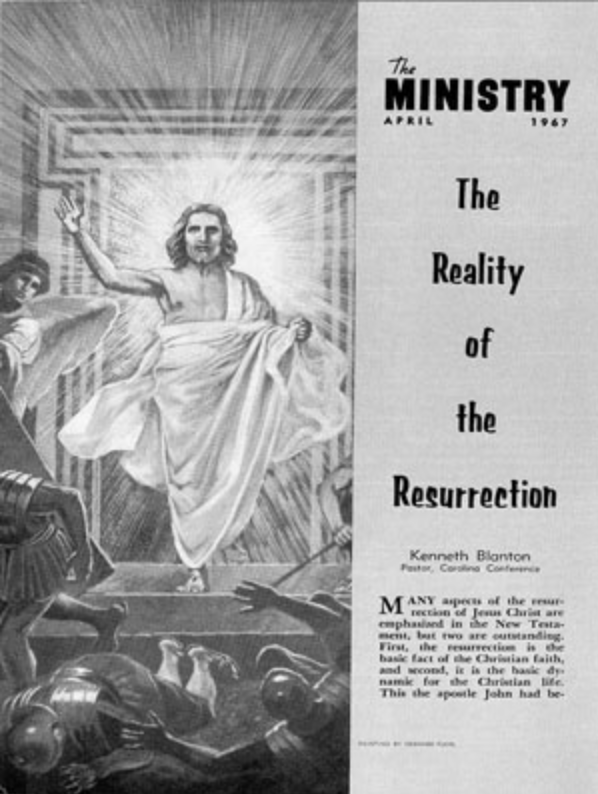
Speaking of the strength of Ahmadi preaching, the Ministry Magazine further stated:
“Appearing to be the spokesman for the Moslems present, the Ahmadi evangelist will do his best to pose logical dilemmas that the tactful Christian would rather meet in private, and his attempt to sidestep the interruption in a public confrontation is turned frequently to mean an inability to answer the questions posed, and is meant to imply thereby, the spiritual inferiority of Christianity.”
Ibid
The legacy of the Promised Messiahas therefore as regards his efforts in dispelling the misconceptions of Christianity is that many Ahmadis can now confront Christian priests. The fall of Christianity and the spread of Ahmadiyya has only continued after his demise.
Mr. Herbert Gottschalk writes in his book, Weltbewegende Macht Islams:
“Today Islam is not using the sword to spread its doctrines … The peace loving Ahmadiyya Muslim Jama‘at is busy in almost all countries of the world in expeditions of preaching.”
Weltbewegende Macht Islams, Vorwort, p. 9
Maulavi Nur Muhammad Naqshbandi Chishti wrote a lengthy preface to the translation of the Holy Qur’an by Maulavi Ashraf ‘Ali Thanvi. In the preface he wrote on page 30:
In that age, Padre Lefroy embarked from England with a large contingent of priests, under oath, to convert all of India to Christianity in a short time. He had a huge sum of donations from the British and continuing pledges of monetary support for the future. He created a big splash in India. His [Lefroy’s] argument that all other Prophets were buried in the Earth, but that Jesus was still alive with his physical body proved very effective. At that time Maulavi Ghulam Ahmad of Qadian came to the forefront and addressed that group saying: ‘The Jesus that you talk about died and was buried like other mortals, and the Jesus whose coming is prophesied is none other than myself. Therefore, if you are sincere, you should accept me.’ He harassed Lefroy so much that it became impossible for him to save his face. By this strategy he defeated all priests from India to England.”
Maulavi Nur Muhammad Naqshbandi Chishti; preface to translation of the Holy Quran, p. 30
From these few passages from Non-Ahmadi scholars, it is clear to see that even they acknowledged that one of the missions of Ahmadiyya Islam was to spread Islam to previously Christian areas and to defeat any priests that challenged it. Regarding his own mission, the Promised Messiahas has himself said:
When the falsification of the priests reached its utmost limit, God sent me to carry the argument of Muhammadsa to its ultimate point. Where are the priests now? Why don’t they face me? I have not come at the wrong time. I have come when Islam was being trampled underfoot by the Christians. Now show me one priest who can say that the Holy Prophetsa did not make any prophecy. Rest assured that all of that is a thing of the past.”
Haqeeqatul Wahi, Hazrat Mirza Ghulam Ahmadas, p 347
When the purpose and the achievements of the Promised Messiahas have been written so clearly, the claim that he was an agent planted by the British fails to hold any water. Why would the British invest so much money into disseminating Christianity throughout its empire, while at the same time send Hadhrat Mirza Ghulam Ahmadas to uproot Christianity with irrefutable arguments?
Conclusion
The view that the Promised Messiahas held regarding Jihad was not one that was held by all of the Muslims. The initial reaction of the Muslims against the European colonists was to launch the call for Jihad and form coalitions to fight against these invaders. There have been many attempts in history, some famous ones being Abdul Qadir in Algeria or Mullah I Lang in Afghanistan. These Jihadist movements all eventually failed despite attaining some temporary extraordinary victories against their adversaries.
The Muslims in the time of the Promised Messiahas ardently desired to see the restoration of the former Islamic empire. When their attempts to do so through forceful Jihad failed, the Islamic governments sought more westernised approaches to securing their rule in their countries.
The Promised Messiah’sas peaceful attitude towards the British was not one that was going to secure the Muslims their land and restore the glory of the earlier days of the Islamic Empire. And so they opposed him.
The enemies of Ahmadiyya however, still want to use Islam as a political tool and this is one of their main objections with Ahmadiyya Islam, as it has rejected this position from its outset as has been proven earlier from the Promised Messiah’sas writings on what situations permit the Jihad of warfare. Some of these Muslim scholars use Ahmadiyyat to distract the Muslim masses from their own failures to spread Islam forcefully, alleging, for example, that the Promised Messiahas is an agent of the British that needs to be uprooted first.
These Muslims failed to see that it was the Promised Messiah’sas mission to restore grandeur and honour to Islam, not through physical land and material greatness, but rather through spiritual dominance and through bringing people back to their purpose in life: building a living relationship with God.
More articles
Contact
National Outreach Department:181 London Rd, Morden SM4 5PT, U.K.
Email: [email protected]Phone: 0208 6877804
@ 2025 Ahmadiyya Muslim Community, All Rights Reserved.
